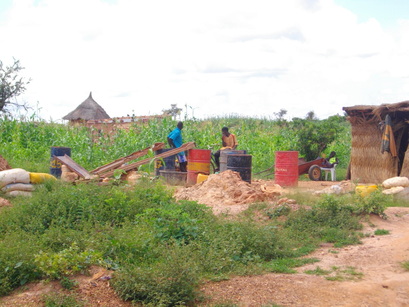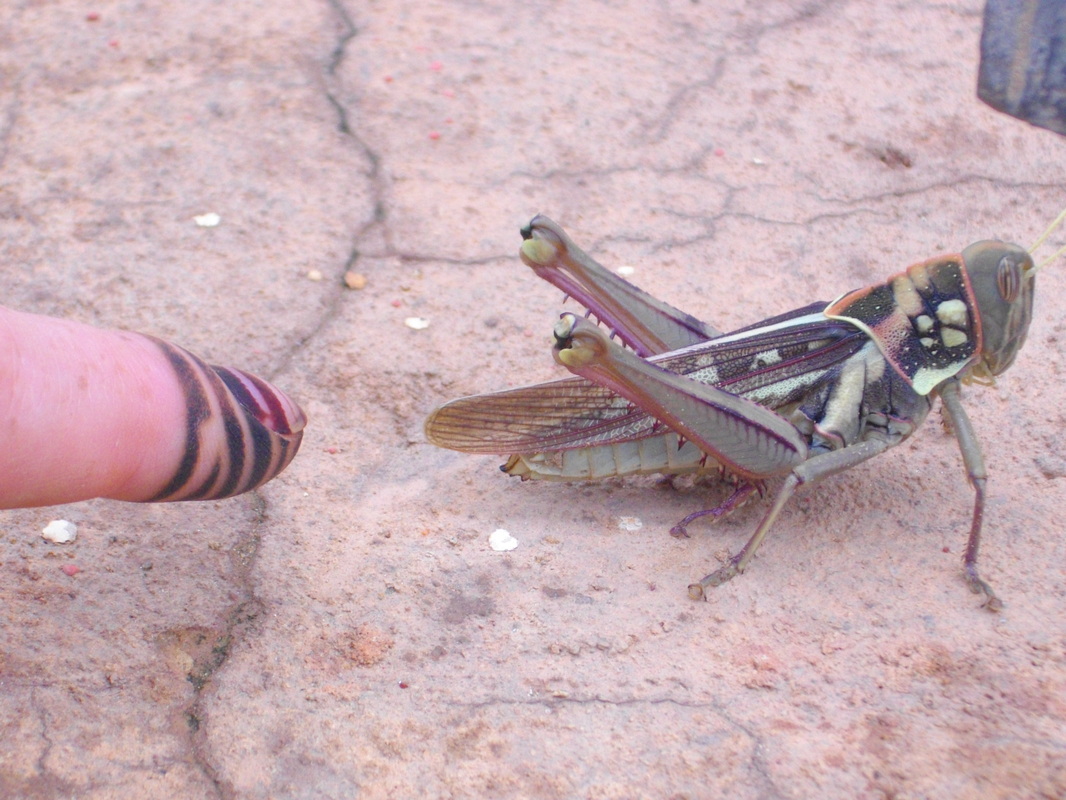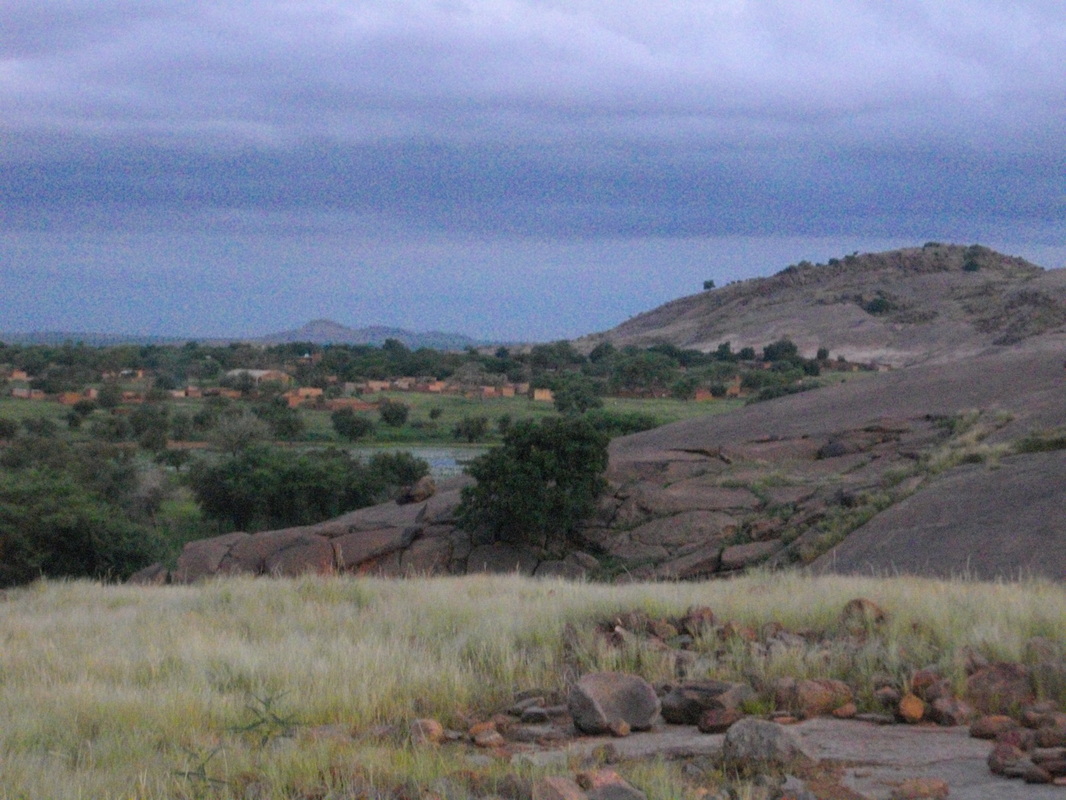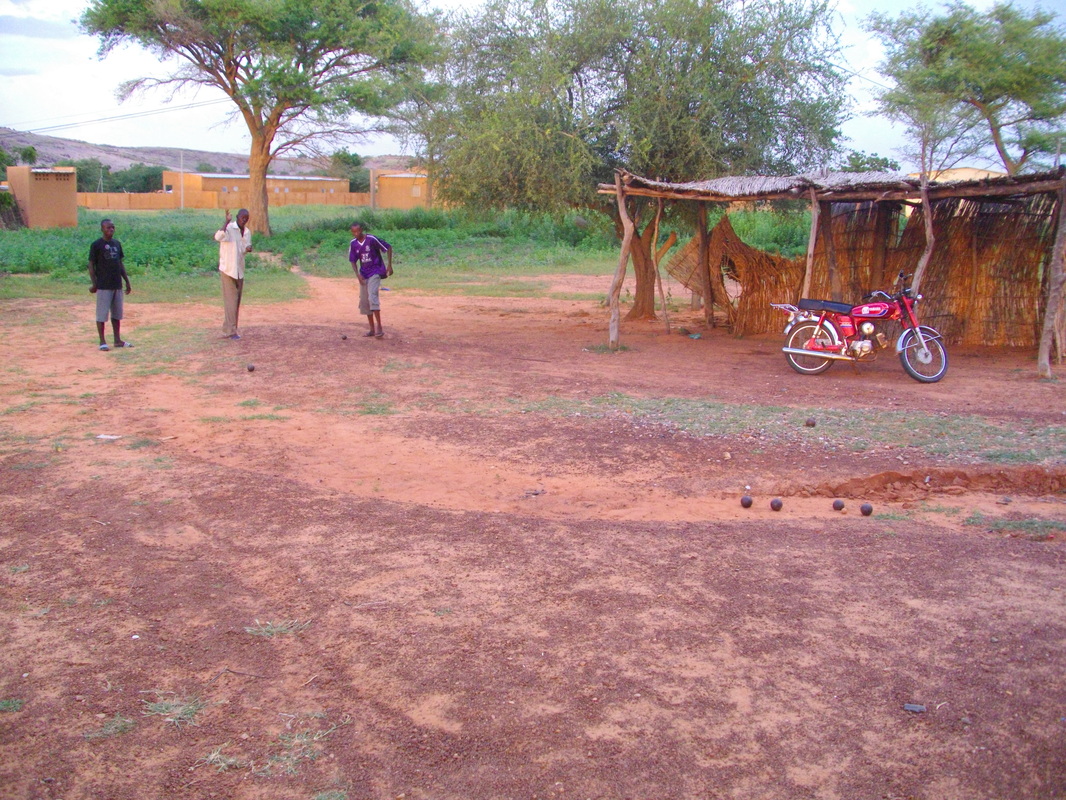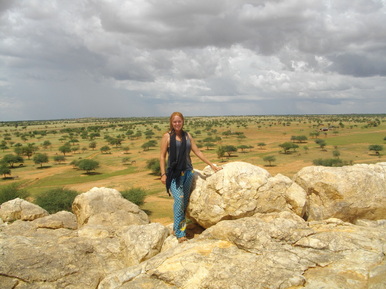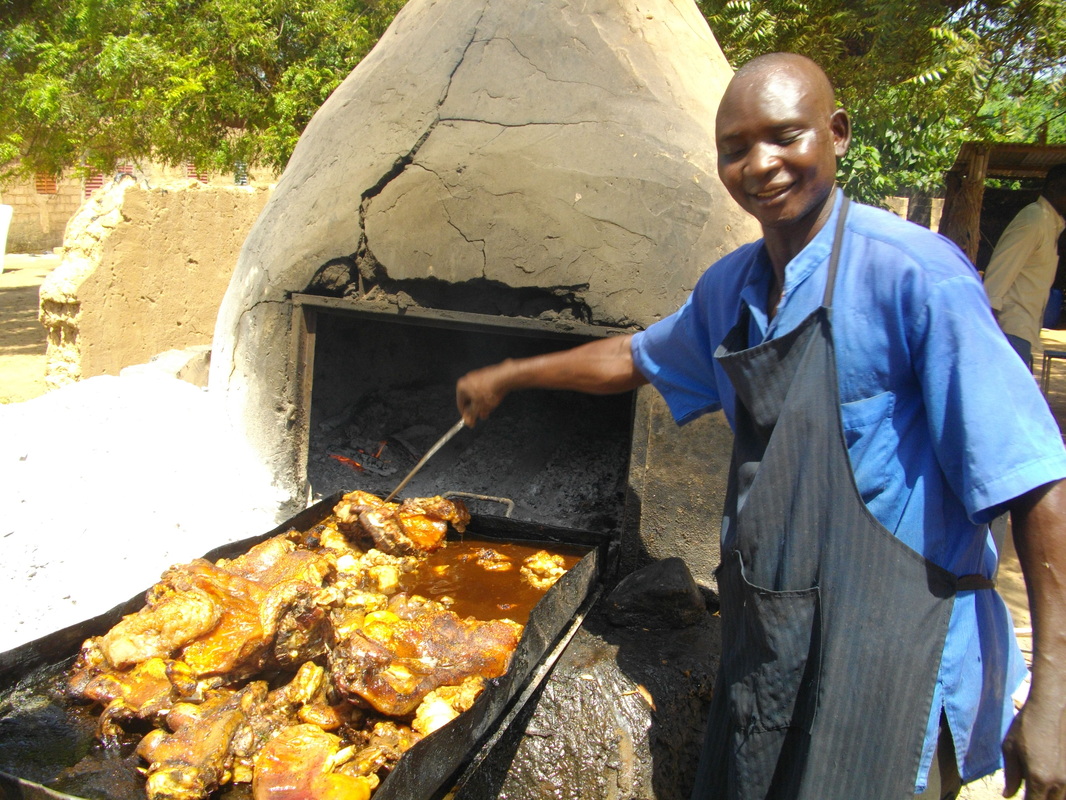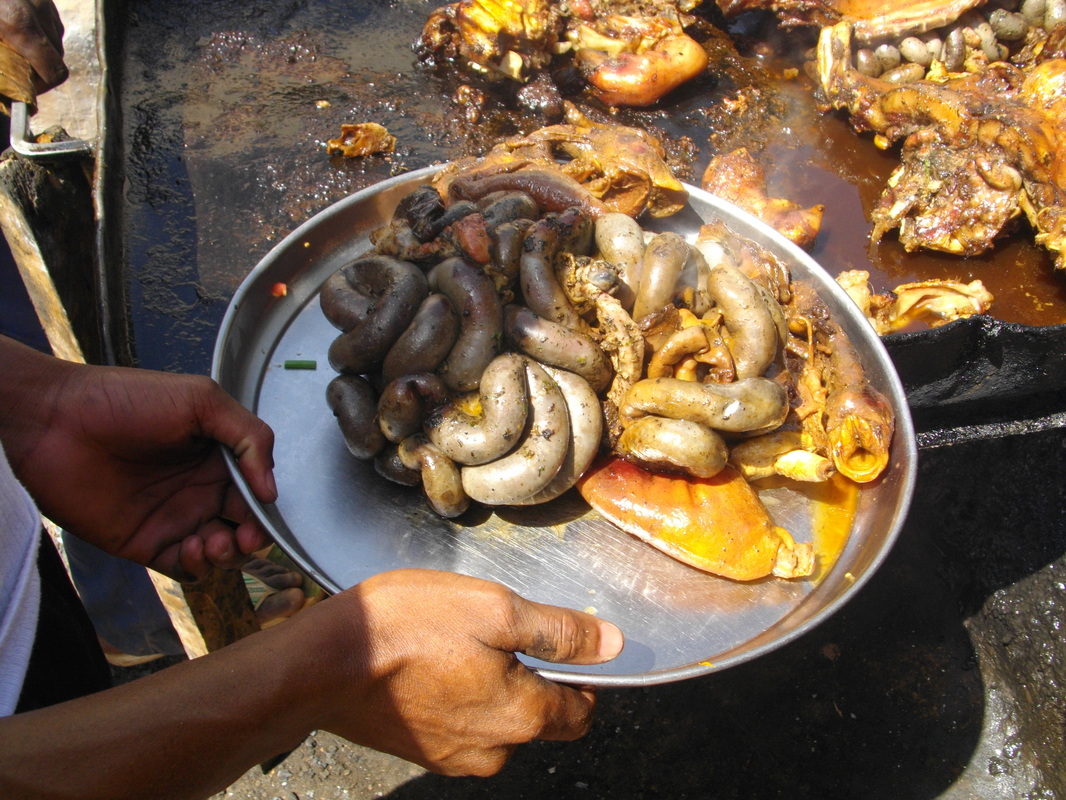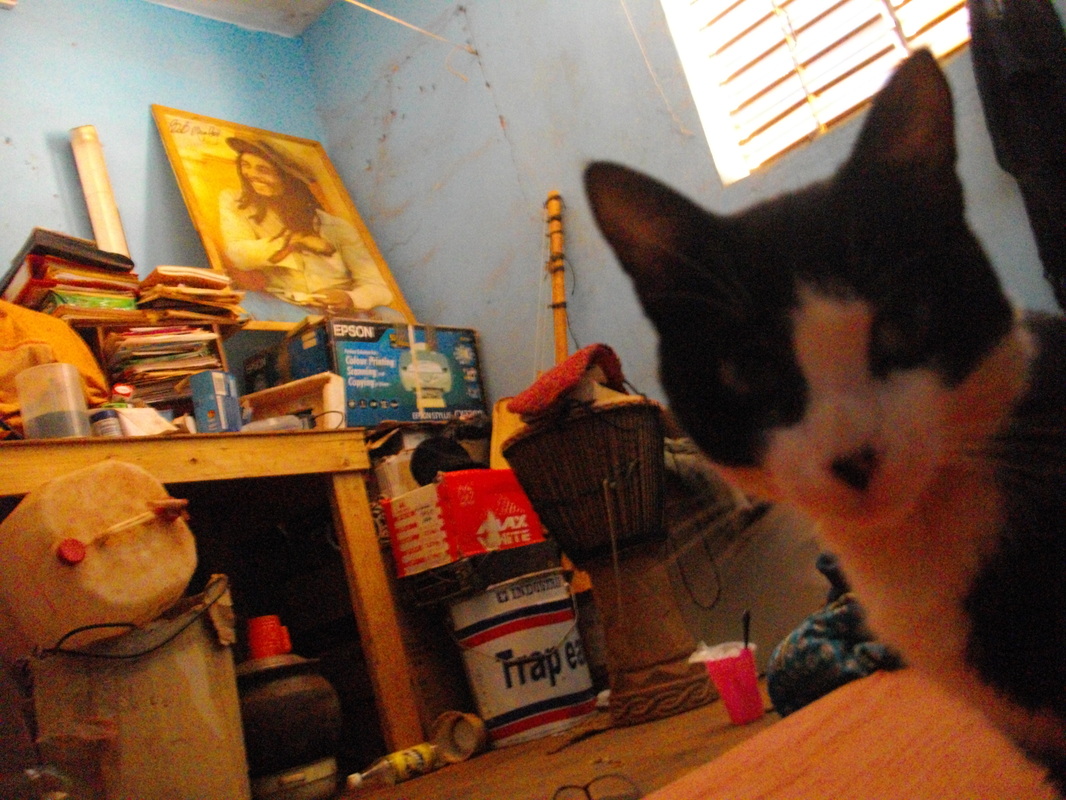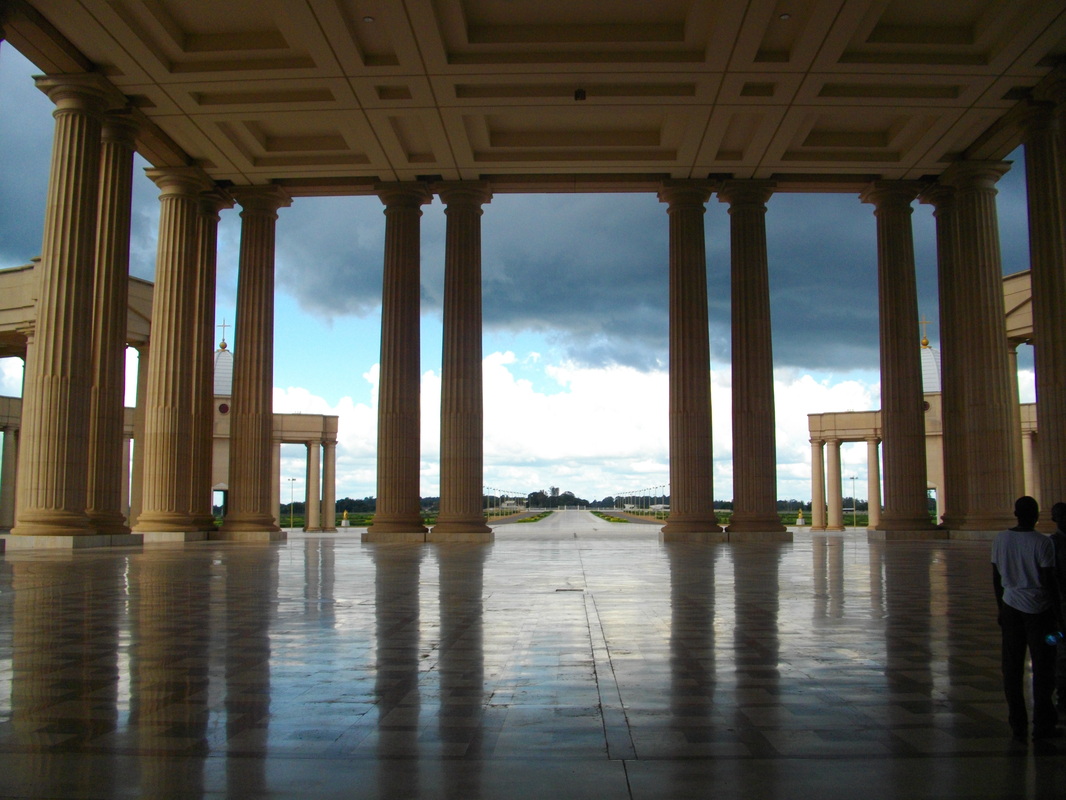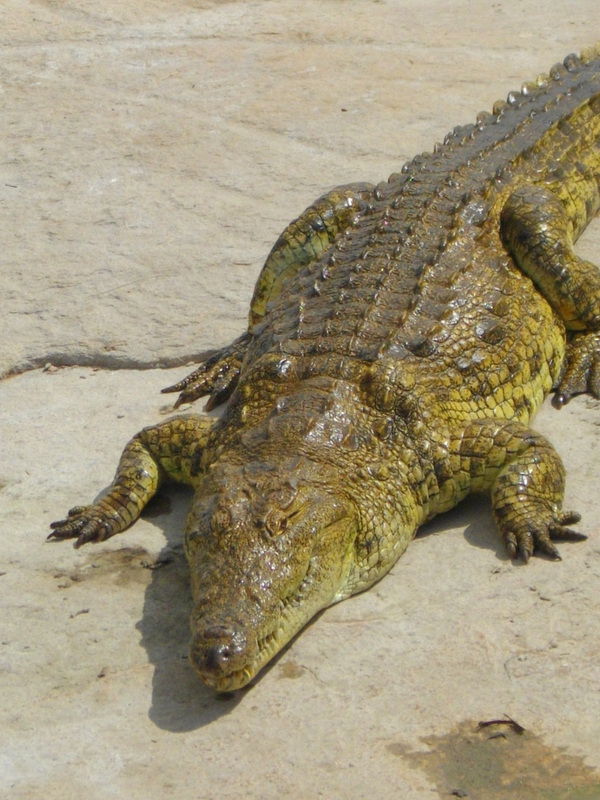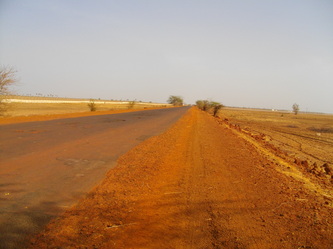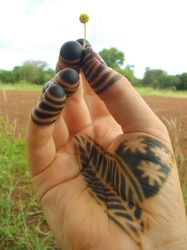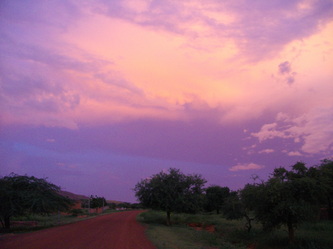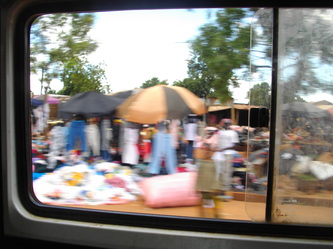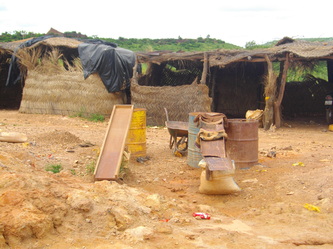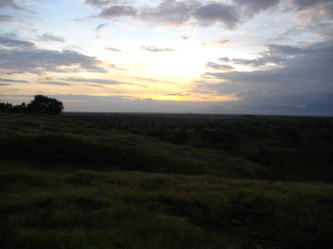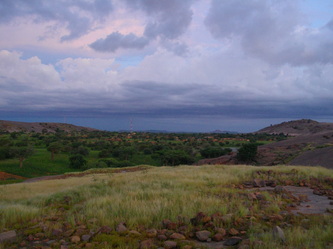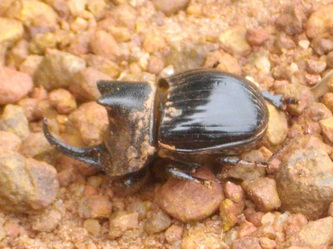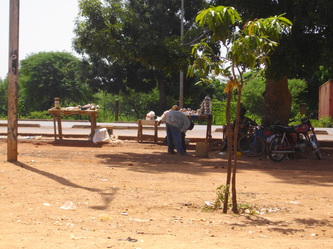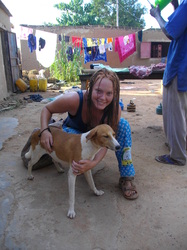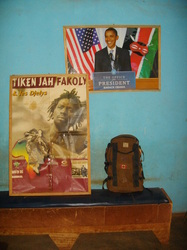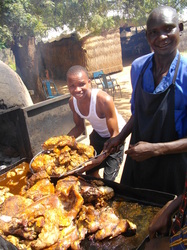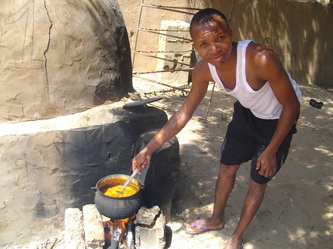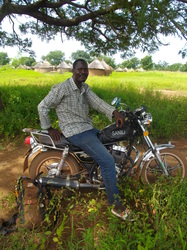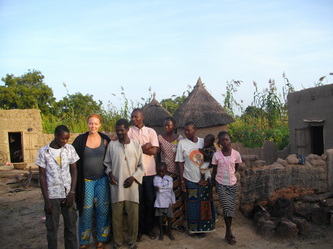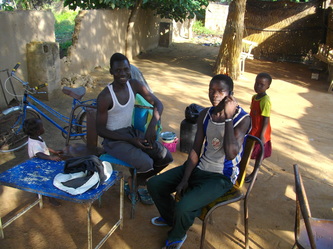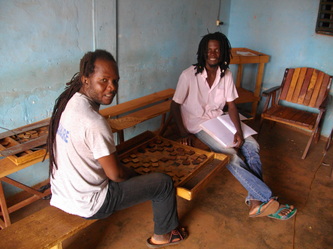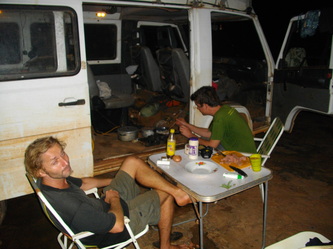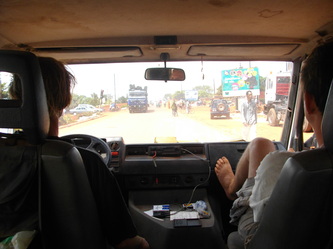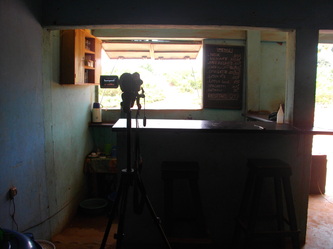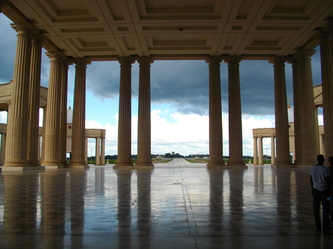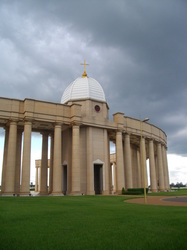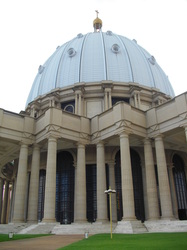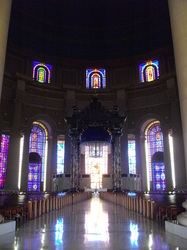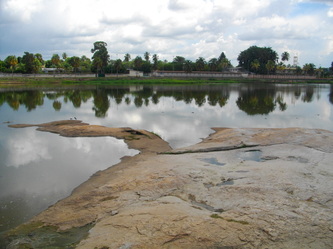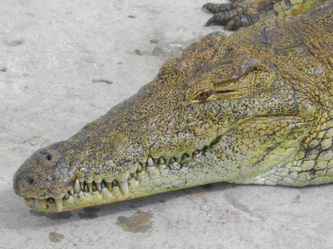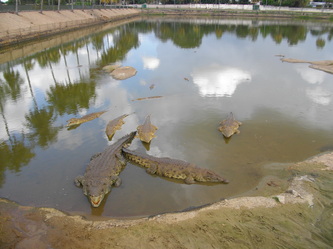Burkina Bound
15/10/2010 - Burkina Faso
My last night in Mali was my first night in Africa with no overnight choice other than to wild camp. I had hitchhiked and walked my way to within twenty kilometers of the Burkinabe border, but now the colors of the sunset were beginning their dance across the horizon, and I was still without a place to sleep. The fact that the dirt road I was walking along was small and seldom used meant that my chances of finding a lift to the border were slim. There were a few minibuses that had passed during my several-hour meander in the southward direction, but my stubbornness to hold to the “free rides only” guideline kept me from flagging them down. And so with the night coming and no villages in sight, I recognized that I had to find a place to sleep under the stars.
|
The landscape was typical Sahelian farmland – familiar to this latitude in West Africa. The maize fields lining both sides of the road stretched endlessly in all directions: to the Burkinabe border in the south and to the fading hills of the Dogon falaise in the north, from where I had come. The huge crop areas in this part of Africa are amazing when you stop and think about it, because unlike the fields we are familiar with in the West, these are planted almost entirely by hand. No big fancy combines here. In the muggy heat before the summer rains, the ground is turned using small spades; weed are collected and burned, irrigation ditches dug with small and often broken shovels, and each seed dropped into its hole by hands that know they wont get food to eat unless their seeds grow. During that strenuous planting season, the villagers work hard all day, only taking one break at lunchtime, sitting under mango trees to eat a simple lunch.
|
|
It was under those same mango trees that I now looked for a place to rest for the night. The two criteria were finding somewhere isolated and somewhere sheltered, since I had no tent to keep the rain off. Soon I spotted a huge mango tree with a thick canopy about 200 meters off the road. It looked promising, although any big tree like that is bound to be a meeting place of villagers, an observation doubly evident in this case by the neatly swept circle around the tree and the canvas sack stored under one of the roots. Despite this threat of people, I decided the spot was suitable to pass the night and resolved to be out by the crack of dawn. Plus, the smooth ground and canvas sack would make for a nice bed.
|
|
The aroma of adventure was strong that night; after all, don’t you always smell it when you are somewhere new, feeling apprehension mixed with a tinge of fear, surrounded by the unknown and awaiting the unexpected? I hung my mosquito net and lay out my “bedding” – the canvas sack and the little bit of clothes that I possessed. My shetenge-wrap became was my only choice for a blanket. I lay awake for a few hours, listening to the sounds of the night, feigning sleep; if anyone ill-intentioned had watched me leave the road, they would have guessed the landmark to which I was headed, and would be waiting until I slept to make their move. Of course, chances are that if I had been observed coming into the fields and not leaving, word would have spread quickly and I would have had the chief of a village searching me out, insisting I return with him to become an honored guest in his village. But eventually I was convinced enough that no one had seen me, and I fell into a listless sleep.
|
During the night I woke up several times to listen for footsteps, but it was safe; my only visitors were a few frogs which thought my bed looked comfortable and waddled under the edges of my mosquito net. Now it goes without saying that waking up in the pitch darkness of an African night with something cold, smooth and slippery crawling in your bed isn’t a welcome experience, but I was lucky and simply batted the frogs back to the corn fields. Soon the first rays of sun were stretching their way up from the east, and my stiff body was happy to be able to stretch and welcome the new day. In hindsight it was of course a triumphant experience: I had conquered my fear of a night alone in the African bush. Making it across the continent seemed more within my grasp than ever. I walked the rest of the way to the Mali border, had breakfast with the military, and set out for Burkina.
|
The closest city was a few hundred kilometers past the border, so I was lucky to get offered a ride by the first passing motorcycle. His bike was small and looked like it was from the seventies, so it is understandable that it took most of the day to arrive in Ouahigouya. I immediately noticed the differences from Mali. Here in the central-north of Burkina the people were predominantly Muslim, as in Mali. However upon entering this city it became immediately clear by the number of bars, discos and the ubiquitous “Guinness” billboards that here Islam was taken in a much more liberal stride. There was rebellion to this of course – northern Burkina had recently been blacklisted by Canada and other western countries as a haven for Al-Queda in Islamic Maghreb (AQIM) activity – but the people seemed content and without terrorism fears. Other countries where there is such a clear geographical barrier between Muslims and Christians, such as Nigeria or Senegal, have a far more fragile coexistence. The only indication for concern that I noticed was the number of Gaddafi funded projects – similar to those in Mali – with their Arabic signs proclaiming the benevolence of the Libyan leader and a map of Africa with a guiding star over his country. Locals spoke of Gaddafi’s intention to create the “United States of Africa” where all countries on the continent unite as one, ridding themselves of the capitalistic disasters that have crippled the continent. Of course, Gaddafi would be president of this rich country.
|
|
I left Ouahigouya en route to Gorom-Gorom, home to Burkina Faso’s last elephants. Rides were slow on the back roads so it took a few days of walking and hitching to get there – luckily when a vehicle did pass they inevitably stopped to offer a ride without needing any solicitation on my part – the solidarity of the bush. I spent a few nights in villages en route, and then one night under another tree in the bush. This turned out to be worse than my first experience because it rained, but whatever – win some lose some. The plus side of the experience was that I had chosen my camping tree at the bottom of one of the huge hills of glistening white quartz rock that are the area’s tourist attraction. The last village I had walked through a villager had tried to sell me a “tour” to the top of one of the “sacred mountains” for $20US, so I was happy to wake up just before dawn to scramble up one of them solo and watch the sun rise over the vast, peaceful Sahel.
|
After Gorom-Gorom, where I’d seen no elephants (their migration path had changed that year), I hitched directly to Ouagadougou, the “best-named capital in the world” according to anyone who has heard of it. Spent a lovely week there Couchsurfing with friends who run a “porc-au four” (pig oven) in front of their house. I was once again tempted to turn vegetarian watching them load one or two greasy chopped up pigs onto a huge tray and sliding it into the clay ovens every morning. But by ten a.m. and a few ice-cold bottles of Guinness the bar was packed with pig-eaters, and I admit it tasted alright – the feet were considered a delicacy.
|
Next it was off to the southern edge of the Sahel – Bobo-Dioulasso, where I stayed in the rasta “Cactus Bar” and had a wonderful time listening to Adama and his brother Samba hard at work in their little recording studio. The Cactus Bar also played battle ground for Me Versus Malaria, Round One. When the fever spiked I had already said goodbye to Bobo en route south, aiming for the Ivorian border after a detour to camp next to some beautiful waterfalls with two Germans I’d met. Heter and Guido were nearing the end of a clockwise drive around the continent in a wonderfully ghetto minibus-turned house on wheels, and besides being awesome travelers with good advice for getting across the continent, they had each had their fair share of malaria wars and knew exactly what to do to help me through mine. Unfortunately we had to cut our camping trip short, but they got me back to Bobo so I could fight the mosquito battle and get back on my feet. It wasn’t so bad: malaria just makes you want to sleep a lot because you are too weak even to sit up. I was lucky to get medication right away; it is waiting to take the pills that is killer.
|
|
After about five days I was back on my feet and once again took off southbound from Bobo, this time arriving in Cote D’Ivoire without problems. There were a lot of rumors flying around about the behavior of the rebels who control the northern half of the country, and although I had planned to explore the north anyway it was probably for the best to have accepted the direct 500km lift south to the government capital, Yamoussoukro. We got there late and had a lovely riverside meal of braised tilapia and fufu with aloko (fried banana) and attiéké (grated cassava). Top that with a few ice-cold bottles of Flag Spéciale and you’ve got yourself a perfect introductory evening in Cote D’Ivoire.
|
Next morning my new friends took me on a quick tour of the giant Yamoussoukro Basilica, a replica of St. Peter’s in Rome built a few inches shorter than the original by Vatican request. The guards let us in for free after our convincing claim that we were only there as pilgrims collecting holy water. The last surprise was visiting the "Presidential Pond" where the guards let us through the 20ft gates to see the 30 or some crocodiles that live there. After a few pictures and tossing in an unfortunate chicken for a croc lunch, my friends and I said our warm goodbyes and I was on my way solo once again – this time to explore a famed land of coffee, chocolate and diamonds.
